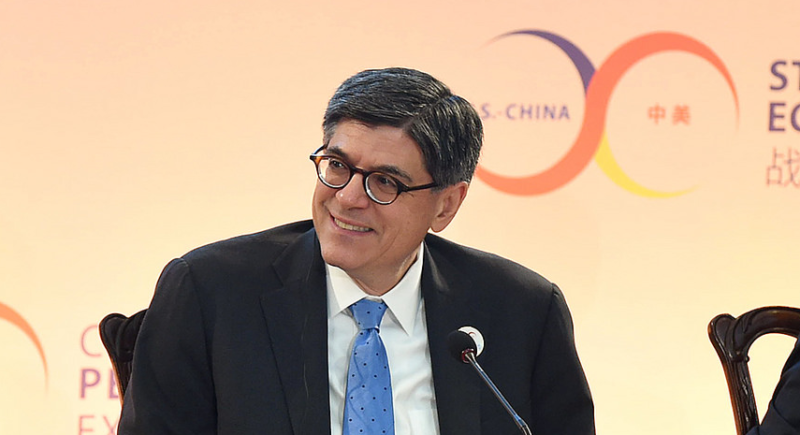Latin America Advisor
A Daily Publication of The Dialogue
Why Have Argentina and the U.S. Teamed Up on Tax Evasion?
 U.S. Treasury Secretary Jacob Lew
U.S. Treasury Secretary Jacob Lew
The United States will expedite the process of sharing tax information with Argentina in an effort to combat money laundering and address tax evasion through increased information sharing, U.S. Treasury Secretary Jacob Lew announced last month during a trip to Buenos Aires. Argentines are estimated to hold some $500 billion abroad, Bloomberg News reported. Why have the United States and Argentina not had better coordination on tax issues to date, and what are the most important elements of the new plans? How will banks and their customers be affected? How much of the estimated $500 billion is related to tax evasion and money laundering, versus citizens trying to protect their assets in a tumultuous economic environment? Has Argentina’s tax amnesty plan, announced earlier this year, been successful?
Claudio Loser, visiting senior fellow at the Inter-American Dialogue, president of Centennial Group Latin America and former head of the Western Hemisphere Department of the International Monetary Fund: "It is not clear that the IRS will proceed with a blanket ‘full disclosure’ regarding income earned by Argentines in the United States. The first issue to take into consideration is that there is no tax treaty between the two countries, thus creating a clear risk of double taxation on income. Second, individuals may take legal actions regarding confidentiality of information or possible abuse on the part of the partner country (Argentina) if information is requested massively. It is very likely that information associated with cases of money laundering and/or corruption will be provided, but not those associated with pure and simple capital flight. In addition, legislation on financial assets is under state, not federal, jurisdiction. Thus, the willingness and ability of the federal government to go beyond the cases noted may be restricted. With regard to Argentines’ investments abroad, the amounts are significant, and they have been accumulated by concerned individuals who have mistrusted, for good reason, the country’s economic policies. It is true that they have evaded taxation, as has been done internally to a much larger extent. However, the main motive was protection of assets because of very deficient polices. It is too early to tell if the current authorities will succeed with their tax amnesty plan, which will depend not only on good intentions, but on the government’s ability to improve economic management on a sustained basis."
Miguel Kiguel, executive director of EconViews in Buenos Aires: "Argentines have had a long tradition of hiding their savings from the tax authority and, by and large, leaving them abroad. As a result, the stock of undeclared assets is large, and the estimates range from $250 billion to $400 billion. This is likely to change as a result of the multiple treaties that the country signed regarding the exchange of financial information with other tax authorities. In July, the government launched a tax amnesty plan to give Argentines an opportunity to regularize their fiscal situations, and most analysts expect that in the new environment an important share of the ‘hidden’ assets will be exteriorized. While it is difficult to estimate the amount of assets that will be exteriorized, it is useful to use the Chilean experience as a benchmark, where $20 billion was exteriorized in a country whose GDP is 40 percent that of Argentina’s. If the results were similar, Argentines should declare $50 billion. However, given that the extent of ‘hidden’ assets is much larger here than in Chile, we could expect a figure that ranges from $60 billion to $100 billion. So far, very few people have adhered to the amnesty. This is not surprising, however, because most of the assets are likely to be declared toward the end of the year, because there are financial advantages to doing so, and due to the operational complexity of the whole process. Until recently, one of the deterrents was that the United States was perceived as a tax heaven, namely because it was refusing to exchange financial information. However, during his recent visit to Argentina, Jacob Lew made a commitment to sign a treaty that would remove this obstacle."
Eduardo Amadeo, member of Argentina’s Chamber of Deputies and chairman of its Finance Committee: "Not only did the previous Kirchner governments not focus on money laundering, but they won congressional approval of two amnesty laws that induced money laundering. The U.S. government lost the confidence of Argentine authorities and decided not to share any information on this issue. Basically, the new plans increase the exchange of information about suspicious operations and individuals. Those who have no legal problems will not be affected. Most likely, there will be increased control over suspicious operations, of the sort that already exists in most banks. It’s hard to say how much of the $500 billion held abroad is related to tax evasion or money laundering, but given the recent history of repetitive economic crises, it is reasonable to think that a substantial portion of that money was hidden in order to protect it from legal uncertainty, devaluations and government intervention in markets. It is too early to say whether the government’s tax amnesty plan has succeeded, because the deadline is next year. However, given information provided by banks and accountants, the result will be very positive. It is harder to hide money overseas; and the mood toward the government has increased confidence in the rule of law."
The Latin America Advisor features Q&A from leaders in politics, economics, and finance every business day. It is available to members of the Dialogue's Corporate Program and others by subscription.



















